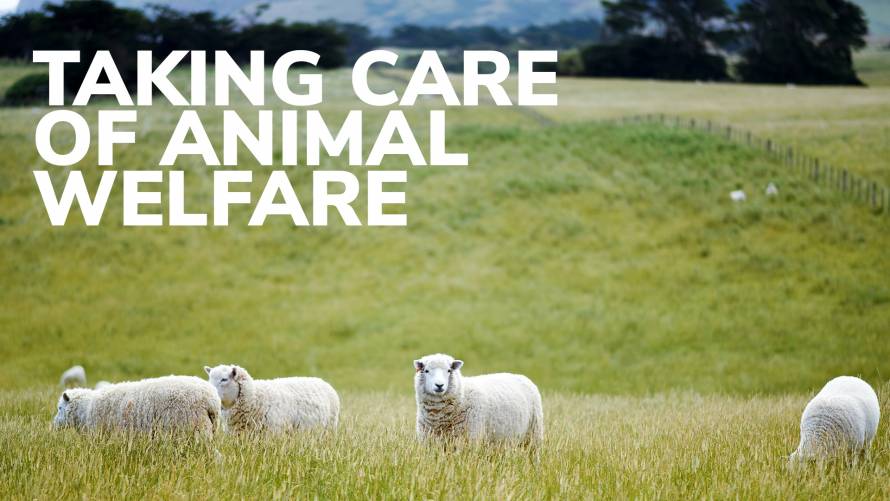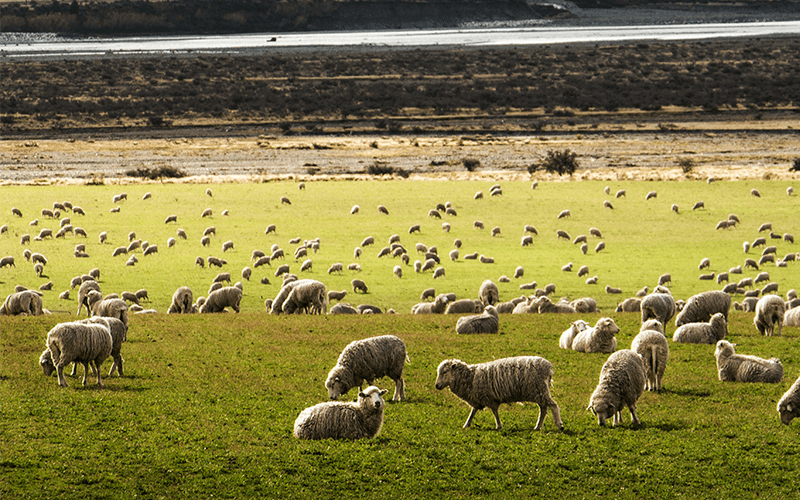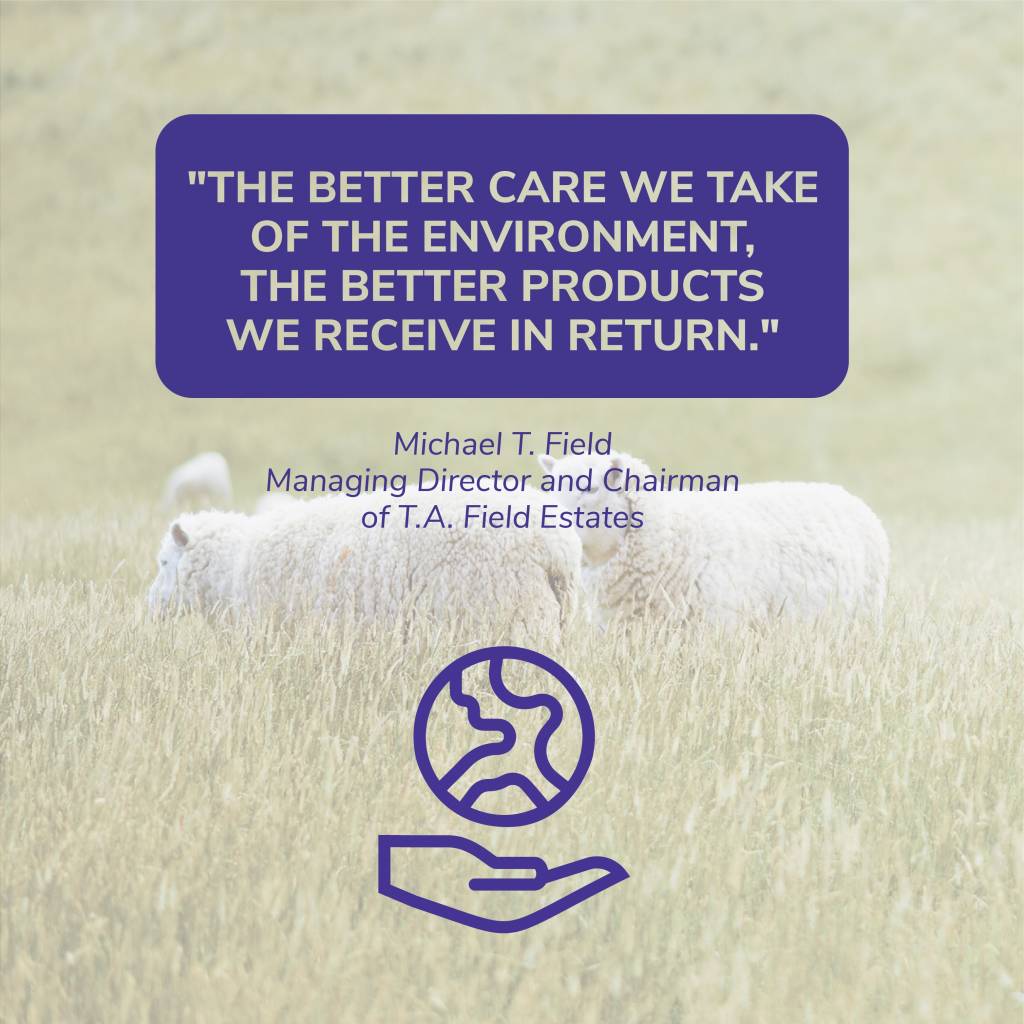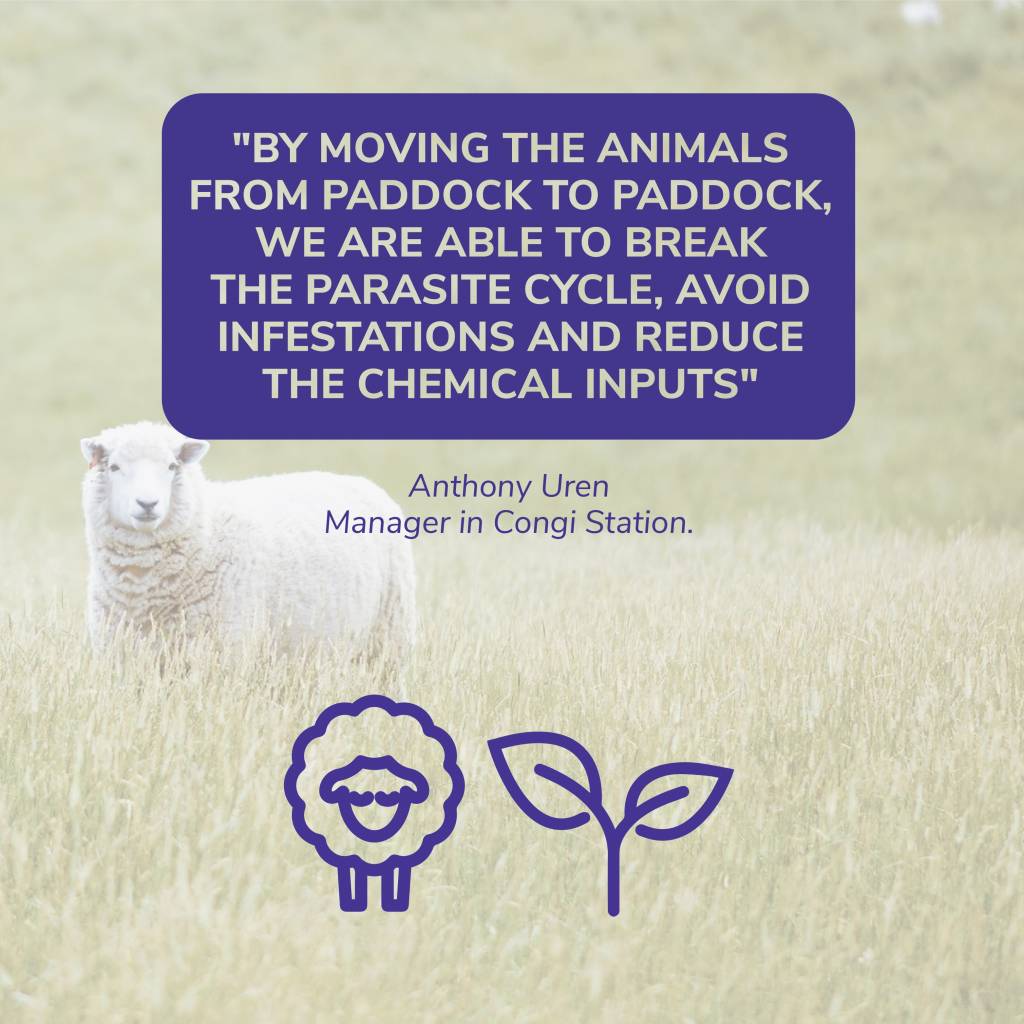
29 September 2021
Taking care of animal welfare
A strategy to restore the soil and the quality of products
There are many voices against livestock activity, accusing it of being a great contributor of the current climate crisis. This can be true when we look at intensive farming activities but, what about those that are cooperating with nature and taking care of animal welfare?
Managing the land correctly can have a huge impact on restoring the quality and health of the topsoil, but the truth is that ecosystems are comprised of not only flora, but the fauna – macro and micro – that live within it and can impact it enormously. There are farmers all over the world that understand this and are starting to cooperate with nature, to both improve the ecosystem’s health and their own product’s quality.
Besides primary producers, everyday more brands, manufacturers and suppliers are taking responsibility. They are increasing their demand on regenerative and responsibly produced materials.
We had the opportunity to discuss it with representatives of two different stages of the supply chain on the importance of these practices and how they have impacted their businesses.
On one end of the chain, we interviewed Michael T. Field, Managing Director and Chairman of T.A. Field Estates, and Anthony Uren, Manager in Congi Station, one of many that the company owns in Australia for wool production, among others.
On the opposite end we talked to Silvio Botto Poala, CEO at Botto Giuseppe e Figli, a company dedicated to the manufacture of high-quality wool, silk and cashmere yarns based in Italy. He also participated along with other companies speakers at our latest roundtable about Regeneration in the fashion industry.
Taking care of animal welfare: key practices for improving product quality
Botto Giuseppe was looking for farms that were both taking care of animal welfare and focusing on responsible land management. In 2016 they partnered with Michael Field and Congi, their Responsible Wool Standard (RWS) certified station, and launched their Naturalis Fibra collection. This is how their relationship began.
RWS’s main requirement is the avoidance of mulesing, explained Michael and Anthony. Mulesing was traditionally used to avoid parasite infestations by removing the top of the skin of sheep, causing them pain. Fortunately, there are other ways to prevent these infections that don’t harm the animals.
Anthony explained that at Congi mulesing ceased in 2007. They started monitoring animal health to ensure disease control and vaccination programs. Furthermore, the shearing is exclusively carried out once a year by trained and qualified workers.
Michael recognized that RWS helped the company go towards the correct direction in regard to animal welfare, but also encouraged them to go beyond. Taking care of animal welfare proved to be beneficial for them, since their animals have currently less health issues, are more vigorous and show higher productivity. It is clear for them, “The better care we take of the environment, the better products we receive in return”.
The enhanced quality of the wool, which is more resistant, helps manufacturers like Silvio work faster and easier. “Botto Giuseppe is focused on establishing partnerships with farms to buy from the same suppliers every year, ensuring transparency”, pointed out Silvio.
Rotational grazing acts as a natural parasiticide
As opposed to conventional grazing, rotational grazing consists in moving the cattle from one confined paddock to another systemically. This allows paddocks to be free from animals’ grazing for long periods of time. It also provides the cattle with fresh pastures, and the soil with animal manure that helps restore and grow grass again.
As Silvio mentioned during the interview, “It was believed that animals were responsible for damaging the soil, although it is not the animals but the way they are managed, and timing is essential in land management”.
But additionally to the soil benefits associated with this practice, Anthony experienced a decrease in the need for parasiticides on the animals at Congi: “By moving the animals from paddock to paddock, we are able to break the parasite cycle, avoid infestations and reduce the chemical inputs”. Since animals are moved every 3-4 days to a clean paddock – which has been empty for 90-100 days – the eggs do not have time to hatch when the cattle are present.
Helping ecosystems to thrive
Keeping the soil covered is key for protecting it from erosion. Characterized by high rainfall and fragile soil, the Australian area is very sensitive to nutrient washing. At T. A. Field Estates they try to avoid this by keeping the ground always covered.
Michael’s strategy is pure logic: to foster the native species present in the area. As he well said, native species are well adapted to the soil and climate, making them very competitive. Consequently, almost the entirety of their pastures is composed of naturally occurring species. Animal manure is used as a natural fertilizer: “The animal uses the nutrients in the grass to produce energy, which at the same time is used to produce the wool. In the end it is necessary to return these nutrients that the animals have taken from the soil”, explained Michael.
When it comes to animal species, they have experienced that combining them might be beneficial for one another. At Congi they tend to mix cattle and sheep when enough space is available; the cattle help create a track to the grass that is used by the sheep to find the path without getting lost. Moreover, both species graze differently: “Cattle will graze in the lower areas along a stream or a creek, while sheep will graze higher areas”. The farmers also explained how this is part of the parasite managing as well, being some parasites very host specific.
There are many actions farmers can do to improve soil quality: taking care of animal welfare can be a first step. Fortunately it is becoming more common for producers, suppliers, and manufacturers to get involved in regeneration. Quoting Silvio, “Sustainability is not about a marketing strategy or a trend, but a lifestyle”.


